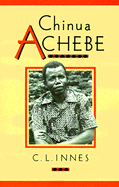Book contents
- Frontmatter
- Contents
- Acknowledgement
- List of abbreviations
- Chronology
- Introduction
- 1 Origins
- 2 ‘A less superficial picture’: Things Fall Apart
- 3 ‘The best lack all conviction’: No Longer at Ease
- 4 Religion and power in Africa: Arrow of God
- 5 Courting the voters: A Man of the People
- 6 The novelist as critic: politics and criticism, 1960–1988
- 7 Marginal lives: Girls at War and Other Stories
- 8 Poetry and war: Beware Soul Brother and Other Poems
- 9 The critic as novelist: Anthills of the Savannah
- Conclusion
- Notes
- Bibliography
- Index
3 - ‘The best lack all conviction’: No Longer at Ease
Published online by Cambridge University Press: 04 April 2011
- Frontmatter
- Contents
- Acknowledgement
- List of abbreviations
- Chronology
- Introduction
- 1 Origins
- 2 ‘A less superficial picture’: Things Fall Apart
- 3 ‘The best lack all conviction’: No Longer at Ease
- 4 Religion and power in Africa: Arrow of God
- 5 Courting the voters: A Man of the People
- 6 The novelist as critic: politics and criticism, 1960–1988
- 7 Marginal lives: Girls at War and Other Stories
- 8 Poetry and war: Beware Soul Brother and Other Poems
- 9 The critic as novelist: Anthills of the Savannah
- Conclusion
- Notes
- Bibliography
- Index
Summary
Men in general think badly: in disjunctive from their personal lives, claiming objectivity where the most irrational passions seethe, losing … their senses in the pursuit of professionalism.
– Adrienne RichThings Fall Apart begins with one kind of certainty and ends with another. The assured tone of the pre-colonial Igbo village elder is replaced by the equally assured and unquestioning tone of the British District Commissioner. For the reader, the real significance of the novel lies in the gap between those two certainties. No Longer at Ease, on the other hand, begins and ends with questions, and the fact that we begin with Obi Okonkwo's trial means that the reader is concerned not with what happens, but why ‘a young man of [Obi's] education and brilliant promise could have done this’. Although the judge's question is chiefly a rhetorical formula and he is not seriously seeking an answer, Obi's emotion interests the reader in him and the reason for his downfall, while allowing, through the cracks in Obi's self-image of himself as a cynical and realistic man of the world, a glimpse of some of the clues to that answer. Those small clues – the ‘treacherous tears’, as well as the oddity of his telling himself that his mother's death and Clara's departure were ‘merciful’ – alert the reader and make him wary of the easy answers proposed by Mr. Green at the European Club or by members of the Umuofian Progressive Union. The reader should also be wary of the easy answers that Obi gives himself.
- Type
- Chapter
- Information
- Chinua Achebe , pp. 42 - 63Publisher: Cambridge University PressPrint publication year: 1990

